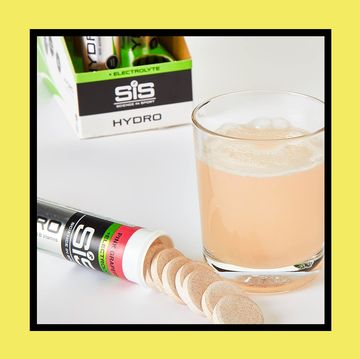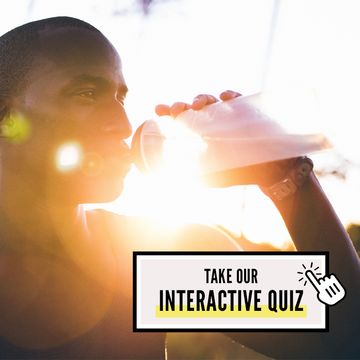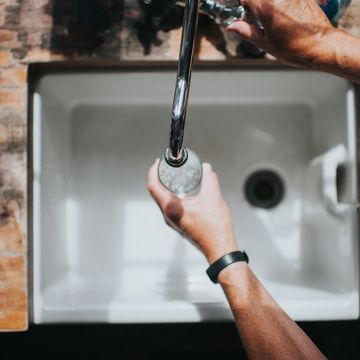While dehydration is often associated with hot and humid conditions, it's important to drink enough water throughout the year to keep your hydration levels in check – even in colder temperatures, when we may not feel the need to take those extra sips.
Here's how to check whether you're hydrating effectively, along with the main dehydration symptoms to look out for when running and training.
Why is water important?
Water constitutes approximately 60% of the human body and is critical in regulating everyday biological functions. It delivers vital nutrients and oxygen to our cells, hydrates and protects our tissues and organs, maintains a proper body temperature and removes waste from the body, so H2O deserves our respect.
How much should we drink?
The Eatwell Guide recommends that we drink 6-8 glasses of fluid each day, which can include water, low fat milk, sugar free drinks and tea and coffee.
That said, fluid requirements vary from person to person and depend on factors such as your age, sex, overall health and activity level, as well as the weather and altitude.
Running and hydration
We lose water through digestion, breathing, sweating and various other bodily functions – often without realising – so hydration is important before we even factor in activities such as running.
When we run, we sweat and breathe much more than we do at a resting state, which causes us to lose water more rapidly than usual. The same occurs in hot weather, so, when we combine the two and run when it’s warm, we lose even more water and put ourselves at greater risk of dehydration if we don’t take on enough fluids.
In the winter, though, water loss is less obvious, and it can be harder to hydrate as we generally feel less thirsty. When we run in the cold, we still lose water through the skin as sweat, which then turns to water vapour at a quicker rate. Wearing more layers to compensate for the cooler conditions can also increase our risk of dehydration.
Symptoms of dehydration
In short, dehydration happens when our bodies don’t have enough fluid to function properly, which can be hugely damaging for our health and wellbeing. It can lead to a loss of strength and stamina, accelerate exhaustion and cause other problems including:
- A dry mouth
- Dark yellow urine
- Constipation
- Muscle cramping
- Headaches
- Dizziness and feeling faint
- Difficulty concentrating
Symptoms of chronic dehydration also include:
- Low blood pressure
- Rapid heart rate
- Rapid breathing
- Sunken eyes
- Dry skin
Dehydration negatively affects your running performance and can hamper your recovery. When your fluid levels are too low, your heart must work harder to cope with physical activity and your mental functions are also compromised. Note the colour of your urine to help you check whether you’re becoming dehydrated – you want to see a pale straw colour rather than a dark yellow.
Staying hydrated as a runner
Aim to drink around 530ml of water at least 30 minutes before and after your run to help prevent dehydration. Recommendations on how much additional water we should consume per hour during a run – should you be out on your feet for a long time – vary from 300-800ml. Consider the outside temperature and how much you tend to sweat, as well as your level of thirst.
Practical ways to drink more
By establishing some good drinking habits, you can help yourself to stay hydrated no matter what the temperature or time of year.
- Drink a glass of water first thing in the morning, then another glass 30 minutes before each meal. Our bodies can confuse thirst for hunger, so this habit increases water intake while helping to prevent overeating.
- Carry water with you everywhere you go, preferably in a reusable water bottle, so it’s always there beside you. If you find the taste of water less than inspiring, jazz up the flavour with a fresh wedge of lemon, perhaps, or some unsweetened squash.
- If you find yourself forgetting to drink water, set reminders on your phone, or download an app that prompts you to hydrate.
- When it’s cold, you may find it difficult to drink cold water. Instead, to stay hydrated, drink warms fluids such as hot herbal teas. Try to avoid drinking too many caffeinated beverages, though, as caffeine is a natural diuretic which can flush water and electrolytes from your body.
- You can consume water through food, too. Soup is a great option – especially in winter – and fresh fruit and vegetables like cucumber, celery and watermelon all do the trick as well.










